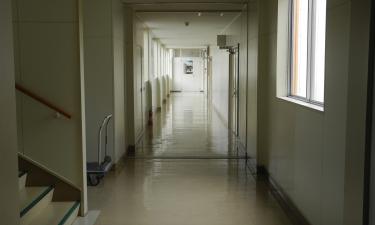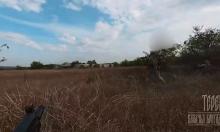The Issues of Modern Archaeology
Archeological work basically happens on construction sites
PRAVDA.Ru conducted an interview with Valery Bulgakov, the man who set up a website of East-European Archeology. Born in 1966, Valery graduated from Kiev University, from the Vienna Institute of Byzantine Studies. At present, he chairs the analytical research lab of the Research Institute, which attached to the Ukrainian Ministry for Culture and Art.
How did this idea come up – to create a website for East-European Archeology? Who was the founder of the project: archaeologists or programmers?
The idea came up during the development of the East-European Archaeological Journal. Now, this journal is a part of the numerous sections of the server. We thought that we needed some sort of a bubble, an environment, in which this journal could become a lot more efficient. This is how the idea appeared. We have specified the logic of the project several times and changed the design. The current situation with the project is the result of our work. Yet, we have more changes to come. Speaking about the people who initiated the website, I have to say that the whole thing was launched by archaeologists. I am an archaeologist myself. At least, I deal with the project as an archaeologist.
The site is very well organized, and it contains a lot of high quality scientific information on it. One can find underwater archaeology, numismatics, and so on and so forth. The list of all of its sections would take too much space. How do you save and select the information?
Indeed, the enumeration of the sections of the site will take a lot of time, about eight pages. The number of articles that we published on our site totals approximately 400. The reputation of the site helps to get the information from other countries as well. We have people sending us articles from Ukraine, Russia, Belarus, as well as from Poland, Bulgaria, Great Britain, Romania, Germany, etc. We are currently working with the Archaeological Institute of Poland to launch a large section that will be devoted to the protection of cultural values in Europe. In that section of the website, we will publish articles written by the scientists from all European countries. There is also cooperation going on with the University of Warsaw to launch an on-line Byzantine Studies journal. More projects are coming soon as well.
In the very beginning, we had only an URL and personal contacts. We managed to get some respectable people involved in the project. This gave a very good incentive for the development of the website, slowly, but surely, so to speak. The selection of the information is not complicated: before posting anything, I read the articles that people send to us. If there is something that I do not understand, I ask my colleagues to help.
It seems that all those things can be done by a professional group of people. Who is involved in the project and how did you find each other?
The people, who work on the project, are professionals of a high level indeed. We also have people in other cities helping us too. The list of them is too long. Speaking about the rest of the job, the process itself, I mean, it is not done by a group of people. This job is individual.
People say that there are certain information technologies for archaeological research. To what extent are they developed in Ukraine, in Russia, and in the world?
The progress continues simultaneously with the development of information technologies. Work in the field of archaeological research has been going on since 1950s or 1960s. However, it would not be an exaggeration to say that the opportunities that a computer can provide for the organization of a research process are not used that much. It took some 30 years to cope with the idea of a large information system that would describe just everything. There are enthusiastic people still. We work with the information systems that are meant for certain subjects. The same happens in the rest of the world. We have such targeted works going on in Moscow, St. Petersburg, Novosibirsk, and in Kiev. Yet, we often lag behind the technological progress as it is. We use programs that are good both for certain researchers or small groups of them. The comparison of the Russian and foreign experience brings up an obvious problem. Informatization, the introduction of informational search engines, stipulates a collective principle of the organization of work. This contradicts the universal practice, both here and abroad. The work of certain archaeologists, research groups and even scientific institutions is isolated. They collect their own information, and this information is protected from other colleagues until it is published. The technological progress has not yet managed to break this style. I do not think that it will ever happen.
Speaking about archaeology, what can you say about the current state of things in this respect?
The situation with any science directly depends on scientific research and its progress. It depends, so to speak. Sometimes things change, and sometimes they don’t. As a matter of fact, this question implies an answer: it is all about financial and technical maintenance. I do think that those two things are strongly connected with each other. Archeology nowadays is like a pie with many layers. It has contributions and traditions of many generations, various theories, and interests that compete with each other. At the same time, archaeology is based on hundreds of expeditions to every place that you can think of. A new element that we have to deal with in the current decade is the brain drain from Russia.
People expect something amazing from the science of archaeology, especially after the discovery of Troy at the end of the 19th century. Can Ukrainian archaeologists promise any surprises to happen in the future?
Is that really so? I thought that such expectations are already in the past?
But can there be any grand discoveries made in the field of archaeology?
Well, I think that this question is meant for Nostradamus. There are no mysteries in archaeology. There are problems that need to be solved. Each field of science has its own issues, and I do not think that a public conversation about them would be interesting. Archaeological excavations can be conducted anywhere. Sometimes, you can see an archaeologist running after a bulldozer. This is not a joke. A lot of discoveries were made during construction works. For example, in 1972, there was a metro line built in Kiev. Archeologists used that opportunity and discovered felling dwellings. It was an important discovery to make, since it was believed before the people of Kiev used to live in dug-outs and huts. The discovery was made during three days, since it was the period that the metro builders provided. Now, the situation is different. Sometimes a municipal government does not allow archaeologists to work at a construction site. They want to finish it up quickly, without any delays. Surprises happen anyway. For instance, there was a treasure of golden jewelry found this year. This is a very special finding. There is an archaeological dream, so to speak – to find Atlantis, or Noah’s Ark. This is just a dream. I think that the real archaeological discovery happens, when you find a key link of your personal puzzle. This can be Troy, Atlantis, or just a piece of a Greek jar.
Archaeological research costs a lot more than maintaining an Internet resource. How do you settle financial issues?
We just settle them. There is always an opportunity to find a way out. I know there were some strange rules in the Archeological University of Kiev. The personnel of the university were not allowed to stay and work in the building after 6 p.m. It was not allowed to work during weekends either. This helped to save some money on the lower consumption of electric power. Seriously speaking, archaeological excavations basically happen on construction sites – when they build roads, metro lines, gas pipelines, heating or sewage systems, and so on. According to the law, such works are paid by construction organizations. The direct funding of archaeological research is a rare thing to happen nowadays.
What are the plans of your project?
First and foremost, we do not plan to change the nature of the server. We plan to preserve the structure and the organization of the website, where every subject belongs to a certain section. By the way, this is the only site of its kind. Our search engine works with archeological content only.
Andrey Lubensky
PRAVDA.Ru
Translated by Dmitry Sudakov
Subscribe to Pravda.Ru Telegram channel, Facebook, RSS!





